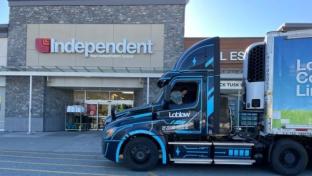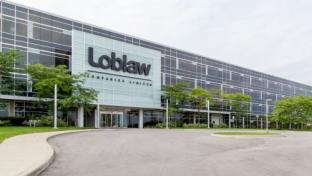Loblaw Transforms Itself Again
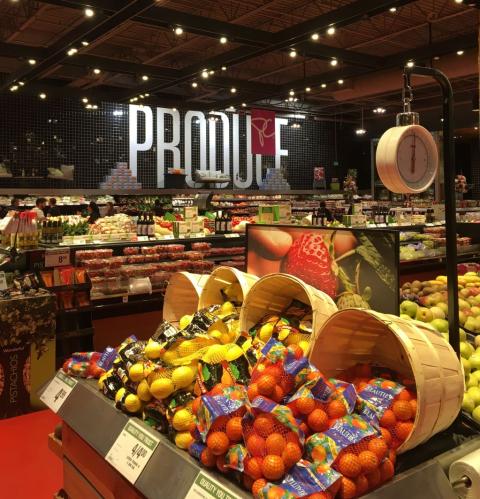
Perhaps there’s no better time than now for one of North America’s largest grocery retailers to be embarking on a transformation.
Loblaw Cos. Ltd., with more than 2,500 stores across Canada and 2021 total sales of CAD $52.3 billion (all monetary values in this article are in Canadian dollars), has completed several successful reinventions in its 103-year history, through even the rockiest financial times. You would think that with inflation in Canada at a historic rate of 7.7%, the grocer, a private label pioneer, would be laser-focused on expanding its store brands now that consumers are switching away from national brands to save money.
The company’s latest reinvention is focused on more than just private label innovation, however. This time, e-commerce, sustainability and retail health care are top of mind, with a little foodservice innovation and cost control sprinkled in — all aimed at helping Canadians “Live Life Well,” the brand’s purpose.
“With a backdrop of high inflation globally and the return of normal routines here at home, the breadth of our business and its range of well-defined value and services are resonating with consumers into 2022,” said President and Chairman Galen G. Weston in a first-quarter earnings call in May. “Delivering value is core to our customers’ purpose, our company’s purpose, of helping Canadians live life well.”
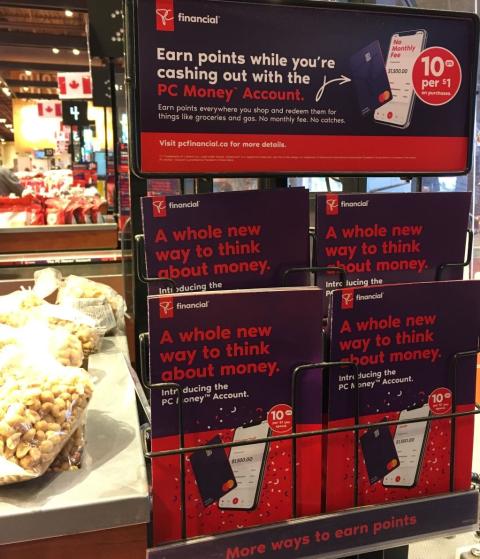
Building Momentum
In its latest financial report, Brampton, Ontario-based Loblaw, which operates more than 15 retail banners, including Shoppers Drug Mart, Pharmaprix and Provigo, delivered another strong quarter in a retail environment experiencing sustained grocery demand and rising inflationary pressures.
Revenue for the period ended March 26 was $12,262 million, an increase of $390 million, or 3.3%. Retail segment sales were $12,045 million, an increase of $375 million, or 3.2%.
Drug retail segment results were strong and drove margin expansion in the quarter as front-of-store and prescription sales benefited from the loosening of social restrictions in Canada, and pharmacy services continued to perform well. Food sales continued to benefit from higher-than-normal eat-at-home levels, and customers responded favorably to data-driven marketing promotions and offers from PC Optimum, the grocer’s loyalty program with more than 18 million members. Food retail (Loblaw) segment same-stores sales increased by 2.1%, while drug retail (Shoppers Drug Mart) segment same-store sales increased by 5.2%.
Also, “for the first time since the pandemic began, we saw the sales mix between our discount and market businesses return to pre-pandemic levels as we exited the quarter,” said CFO Richard Dufresne. “Although customer buying patterns shifted as restrictions loosened and inflation continued, our market banners remain strong and continue to perform well against our conventional grocery peers,” which in Canada include Sobeys, Metro, Walmart and Costco.
Operating income at Loblaw was $738 million, an increase of $121 million, or 19.6%. Adjusted EBITDA was $1,343 million, an increase of $125 million, or 10.3%. Retail segment adjusted gross profit percentage was 31.1%, an increase of 80 basis points. Adjusted diluted net earnings per common share were $1.36, an increase of 23 cents or 20.4%.
According to Dufresne, the grocer expects eat-at-home trends to continue to taper during the rest of the year.
“We expect inflation to remain elevated in the short term,” he noted. “However, inflation may moderate in the second half of the year. That said, there are broader macro and geopolitical factors that are outside of our control that impact the inflation landscape. While we continue to experience challenges within our supply chain, our in-stock position has improved, and we remain confident in our ability to navigate the situation.”
For his part, Weston observed that the company has “momentum in our core retail businesses, a clear strategic agenda and continued traction in our growth initiatives.”
Those growth initiatives include opening a new foodservice-focused format in Quebec; several innovative environmental, social and governance (ESG) efforts; and a new partnership with San Francisco-based DoorDash.
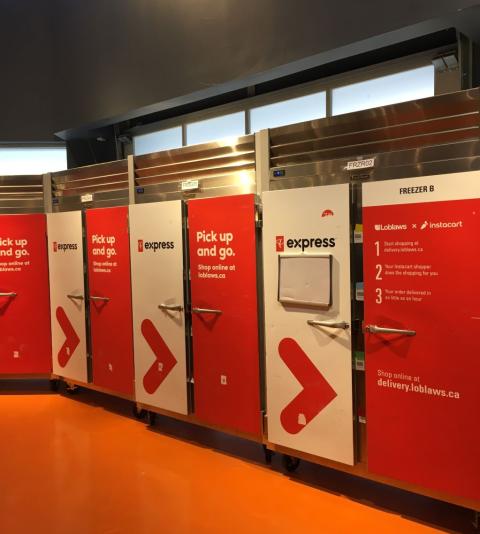
Digital Expansion
When it comes to omnichannel performance, Loblaw has been making investments for years in having data analytics and digital solutions drive day-to-day operations. Those investments are now paying off: The company’s digital businesses delivered $3 billion in sales over the past 12 months, continuing to run well above pre-COVID levels.
“Our omnichannel network is well positioned,” Dufresne said. “We continue to enhance our customer experience through our digital platform while offsetting its cost through optimizing operational efficiencies, deploying new technology and [refining] our delivery offering.”
In June, Loblaw unveiled a collaboration with DoorDash that will bring rapid grocery delivery to customers. Beginning in August, PC Express Rapid Delivery will aim to deliver grocery and convenience items to shoppers in 30 minutes or less. Rolling out in major cities across Canada, the express rapid-delivery offering will feature grocery and convenience items supplied by Loblaw.
“Our goal is to bring convenience to customers in Canada, with the selection and speed they want,” said Shilpa Arora, general manager of Vancouver-based DoorDash Canada. “Through this collaboration with Loblaw, we are addressing consumers’ need to ‘get it now,’ in addition to our existing Marketplace and Drive channels, and furthering the value we bring to consumers and partners alike.”
Additionally, beginning this month, customers will be able to order on the DoorDash Marketplace app from their preferred Loblaw Cos. banners throughout Canada, including Loblaws, Real Canadian Superstore, Atlantic Superstore, Provigo, Maxi, Shoppers Drug Mart and Pharmaprix. This will reach 85% of the country’s population, according to DoorDash.
Additionally, DoorDash will enable same-day delivery for items from all Loblaw banner stores on the PC Express site via DoorDash Drive, DoorDash’s fulfillment platform that powers direct delivery to customers for any business. Rapid Retail Canada Inc., a DoorDash subsidiary, will be the retailer operating under the PC Express Rapid Delivery brand.
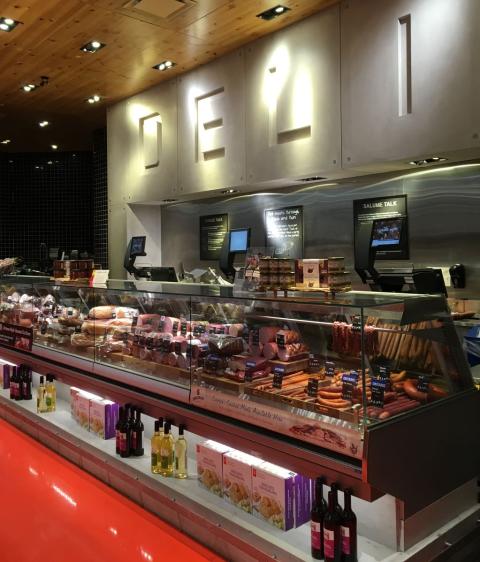
Path to Localization
In June, Loblaw’s Provigo Le Marché banner debuted a new format in Kirkland in the Montreal region. The concept spotlights foodservice and hyperlocal fare. The store features hundreds of local deli, meat, fish and seafood products, as well as condiments and natural items.
Also on display are expanded selections of sushi, poké bowls, gourmet sandwiches, lobster rolls, and soups and salads. Ten types of Roman-style pizza, made with hand-stretched dough and fresh ingredients, are baked in-store in a stone pizza oven. The store also offers more than 500 new craft beers and a pastry counter.
When the Provigo Le Marché concept was launched 10 years ago, it revolutionized the grocery shopping experience,” Johanne Héroux, senior director of corporate affairs and communication at Loblaw, told Progressive Grocer sister publication Canadian Grocer. “Ten years later, we felt the need to bring this experience to the next level. The pandemic changed customers’ shopping habits, and they’ve rediscovered cooking and eating at home. They also realized more than ever the importance of buying local.”
Local is certainly a major focus for Loblaw, which in 2018 made a commitment to increase its Canadian-grown produce purchases by $150 million by 2025 through shifting from imported to local sources.
As part of this initiative, Loblaw has nearly tripled its purchases from a local carrot farmer using a patented growing process that provides carrots beyond traditional seasonal availability. The grocer has also partnered with Canadian berry growers to increase its purchases of local berries by nearly 30%.
In another line of announcements related to Loblaw’s efforts to fight climate change, the grocery chain vowed in June to eliminate all single-use plastic shopping bags from its stores by early 2023. The move completes a 15-year journey, which commenced with the company being one of the first major retailers in Canada to implement a pay-for-bag program to help reduce plastic waste.
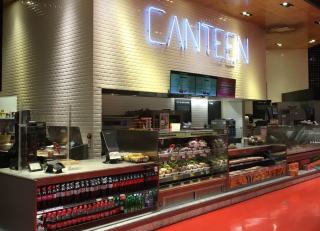
"As a purpose-led organization, committed to helping Canadians live life well, we are proud to be taking a significant step on such an important environmental issue,” said Loblaw COO Robert Sawyer when the news became public. “Since 2007, our efforts to reduce the number of single-use plastic shopping bags leaving our stores has led to 13.8 billion fewer bags potentially going into landfill.”
Loblaw customers have already rallied around the reusable-bag approach. The adoption of a plastic bag fee led to a 70% decline in the use of plastic bags in its stores, and shoppers have turned to the iconic PC reusable bag and plastic bins as sustainable alternatives. As single-use plastic shopping bags are phased out systematically, province by province, customers will be supported with a variety of reusable alternatives as well as ongoing communications to raise awareness of the options available.
In March, Loblaw took another action on climate change with its plan to achieve net-zero greenhouse-gas emissions by 2040 as part of a host of environmental commitments.
As a fourth-generation family business since 1919, with the country’s largest network of corporate and independent grocery and drug stores, Loblaw is positioned to make an impact on these issues. This perspective has been fundamental to Loblaw’s approach to ESG priorities.
“Having met major milestones reducing our carbon footprint and waste, we are now squarely focused on the next challenge: net zero,” Weston said in the recent earnings call. “It will see us deploy electric trucks, efficient heating and cooling, alternative energy, and innovative methods ahead. The need for action is as clear as our ambition, and it reflects the long-term vision our company has held across generations.”
In 2016, Loblaw committed to a 30% reduction in corporate carbon emissions by 2030. The company met that target in 2020, due to its advancements in energy management, equipment conversions and addressing refrigerant leaks.
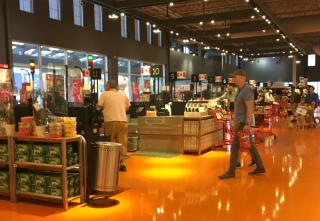
Retail Health Reimagined
Health and wellness is another key pillar of Loblaw’s ESG strategy.
The company connects its retail and health care businesses to help customers get well and stay that way. Its PC Health app provides virtual health care services through a network of care navigators, registered nurses, registered dietitians, physicians, physiotherapists and other allied health professionals. To date, there have been more than 820,000 downloads of the PC Health app.
The grocery chain has also performed more than 900,000 medication reviews to support improved patient health outcomes. Loblaw’s Wellwise by Shoppers platform is the largest Canadian retailer of home health care products and services, including medical devices and equipment, sleep therapy products, professional fittings for braces and supports, rental services, and in-home consultations. The company even retails medical cannabis using an e-commerce and mail delivery platform.
“I think what COVID has done, both for the Canadian consumer and then also for the public health care system, is it’s really helped everybody understand the complementary role that the pharmacists and the pharmacy can play on kind of basic health care delivery,” Weston noted during the earnings call.
In March, Loblaw said that it was acquiring Toronto-based wellness company Lifemark for $845 million in cash, adding that the acquisition will help grow its retail health business. The news came after Shoppers Drug Mart had teamed up with the company last year to offer online bookings for physiotherapy and rehabilitation services. Lifemark’s integration into the retailer’s PC Health app gave shoppers access to health professionals in 300-plus rehabilitation clinics, as well as the opportunity to earn PC Optimum points for completing an eligible initial assessment.
“Lifemark joins Maple and dentalcorp in a growing group of trusted service providers featured on the PC Health app that will help Canadians get the timely health care services that they need,” said Jeff Leger, president of Shoppers Drug Mart Inc., when the partnership rolled out. “PC Health users can now book virtual doctor appointments, find dental and oral care specialists, physiotherapy, massage, and other rehabilitation service providers.”
“In the first quarter, Pharmacy Services continued their multiyear expansion, a strong indication of the relationships patients continue to build with their pharmacists as convenient and trusted health care partners,” Dufresne said during the earnings call.
Looking ahead to the rest of the year, Weston said on the call that the company is “particularly encouraged by its discount division, which represents 60% of grocery sales.”
“Our hard-discount No Frills and Maxi stores are a bellwether for customers seeking value,” he observed. “This is an indication of the Canadian consumers steadily increasing focus on value. We see similar signs in the performance of our market-leading private label program.”
After President’s Choice, Loblaw’s No Name brand is the second largest in the country, and sales are at all-time highs.
“Yes, private label penetration is up above 30%,” Weston affirmed on the call. “It is growing notably faster than our non-private label products and programs. We’re kind of back to normal, or call it back to pre-COVID, price sensitivity, promotional sensitivity. But we’re watching it very carefully because prices are continuing to grow. Consumer behavior is shifting. It’s the usual things, smaller pack sizes, sensitivity to higher price points, all of that stuff.”



